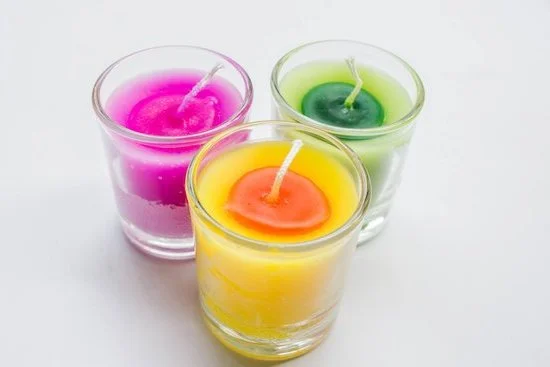Aromatherapy oils have gained tremendous popularity in recent years, captivating the attention of people who seek natural remedies for various ailments and an enhanced sense of well-being. These essential oils, extracted from plants through a variety of methods, offer a plethora of potential benefits and effects that encompass both physical and mental realms.
In this article, we will delve into the world of aromatherapy oils, exploring their history, understanding their composition, discovering how they work on a scientific level, and uncovering their common uses and health benefits.
The use of aromatherapy oils dates back centuries and has been practiced in various cultures around the world. In ancient times, healers would extract essential oils from plants to utilize their therapeutic properties for treating ailments and promoting wellness. Today, this age-old practice has evolved into a modern form of alternative medicine that complements conventional treatments.
Aromatherapy oils are highly concentrated plant extracts that retain the natural aroma and beneficial properties of the source plant. They can be extracted through various methods such as steam distillation or cold pressing. Each type of oil carries its unique molecular composition which determines its distinct fragrance and potential effects.
Understanding how aromatherapy oils work is essential to grasp their transformative power. When inhaled or applied on the skin, these oils interact with our olfactory system (the sense of smell) and trigger responses in our limbic system, which is responsible for controlling emotions, memories, and certain physiological functions. This complex interaction can evoke relaxation or stimulate alertness depending on the specific oil used.
In subsequent sections of this article, we will dive deeper into the historical significance of aromatherapy oils, explore their different types and extraction methods, reveal common uses in daily life including stress reduction techniques and mood enhancement practices. Furthermore, we will examine their potential therapeutic effects on physical and mental well-being while emphasizing necessary safety precautions to ensure correct usage.
By enhancing our knowledge about aromatherapy oils, we can harness their power to transform our lives and promote overall well-being. Let us embark on this aromatic journey to discover the abundant benefits and possibilities that await us in the realm of aromatherapy.
History of Aromatherapy Oils
The history of aromatherapy oils is rich and spans centuries, with their usage dating back to ancient civilizations. The practice of using essential oils for healing and relaxation can be traced back to the Egyptians, Greeks, and Romans. In fact, the term “aromatherapy” itself was coined by a French chemist named René-Maurice Gattefossé in the early 20th century.
Ancient cultures believed in the power of plants and their ability to promote physical and emotional well-being. The Egyptians used aromatic substances for embalming purposes as well as for their medicinal properties. In Greece, Hippocrates, known as the father of modern medicine, explored the therapeutic benefits of plants and developed practices that are still relevant today.
Fast forward to medieval times, where distinct methods of extraction were developed. The most common method was steam distillation, which is still widely used today. During this period, aromatherapy oils were primarily used for religious ceremonies and rituals.
In the Renaissance era, interest in herbal remedies grew exponentially. Physicians and alchemists focused on extracting essential oils through various techniques such as enfleurage and maceration. These oils were used to treat ailments ranging from physical illnesses to mental health issues.
The popularity of aromatherapy oils continued to grow throughout history but experienced a resurgence in the 20th century when their therapeutic benefits became more widely recognized. Today, aromatherapy oils are used in various settings including spas, hospitals, and homes as a natural way to promote wellness and relaxation.
| Period | Significant Developments |
|---|---|
| Ancient Egypt | – Usage of aromatic substances for embalming
|
| Ancient Greece | – Hippocrates explores therapeutic benefits
|
| Medieval Times | – Distinct extraction methods, such as steam distillation
|
| Renaissance Era | – Focus on extracting essential oils through enfleurage and maceration
|
| 20th Century to Present | – Resurgence in the recognition of therapeutic benefits
|
The rich history of aromatherapy oils provides a profound context for understanding their significance today. As we delve further into the understanding and usage of these oils, it is crucial to recognize the deep roots from which they have grown.
Understanding Aromatherapy Oils
Aromatherapy oils, also known as essential oils, are highly concentrated plant extracts that capture the natural fragrance and therapeutic properties of various plants. These oils are typically obtained through a process called steam distillation or cold pressing, which extract the volatile compounds from different parts of plants such as flowers, leaves, bark, and stems. The result is a potent and aromatic oil that can be used for various purposes including skincare, relaxation, and emotional well-being.
There are hundreds of different types of aromatherapy oils available, each with its own unique scent and potential benefits. Some popular examples include lavender oil for relaxation and sleep support, tea tree oil for its antibacterial properties, and lemon oil for mood enhancement. Each essential oil contains a complex mixture of chemical constituents that contribute to its specific characteristics and effects.
When using aromatherapy oils, it’s important to understand that they are highly concentrated substances and should never be used undiluted on the skin or ingested without proper guidance from a qualified professional. To dilute them for topical use, carrier oils such as almond oil or coconut oil are often used to minimize the risk of skin irritation.
| Type of Aromatherapy Oil | Main Properties |
|---|---|
| Lavender Oil | Relaxing; promotes sleep; soothes skin irritations |
| Tea Tree Oil | Antibacterial; antifungal; supports healthy skin |
| Lemon Oil | Mood enhancer; enhances focus; purifying aroma |
It’s worth noting that not all aromatherapy oils are suitable for everyone, as some individuals may be allergic or sensitive to certain oils. It’s recommended to perform a patch test before using any new oil to check for potential reactions. Additionally, pregnant women, children, and individuals with certain medical conditions should consult with a healthcare professional before using aromatherapy oils.
Understanding the different types and properties of aromatherapy oils is essential when incorporating them into your daily routine. Whether you’re seeking relaxation, mood enhancement, or physical well-being, aromatherapy oils can provide a natural and holistic approach to overall wellness.
How Do Aromatherapy Oils Work?
Aromatherapy oils have been used for centuries for their various therapeutic benefits. But how exactly do these oils work to promote relaxation, relieve stress, and improve mood? Understanding the science behind aromatherapy oils can help us appreciate their transformative power on our overall well-being.
The Science Behind Aromatherapy Oils
Aromatherapy works through the olfactory system, which is responsible for our sense of smell. When we inhale the aroma of essential oils, the molecules in the oil interact with receptors in our nose. These receptors send signals to the limbic system in our brain, which is involved in emotions, memories, and behavior.
The Limbic System’s Response
Once the molecules from aromatherapy oils reach the limbic system, they have a direct impact on our emotions and mood. Different oils can elicit different responses from the limbic system. For example, lavender oil has been shown to reduce anxiety and promote relaxation, while citrus oils like lemon and sweet orange can uplift your mood and boost energy levels.
Benefits of Aromatherapy Oils
The benefits of aromatherapy oils go beyond just improving mental well-being. They can also have physical effects on our bodies. Certain oils have antibacterial or anti-inflammatory properties that can assist in healing wounds or easing muscle pain.
Additionally, many people find that using aromatherapy oils leads to improved sleep quality. Lavender oil, in particular, has been shown to help with insomnia by promoting relaxation and creating a calming atmosphere.
Common Uses of Aromatherapy Oils
Aromatherapy oils have gained popularity for their various uses and benefits in daily life. From stress reduction to mood enhancement, these oils offer a natural and holistic approach to promoting well-being. Here are some common applications of aromatherapy oils that can be easily incorporated into your routine.
Relaxation and Sleep
One of the most popular uses of aromatherapy oils is for relaxation and improving sleep quality. Oils such as lavender, chamomile, and ylang-ylang have calming properties that can help reduce anxiety and induce a sense of tranquility. Adding a few drops of these oils to a diffuser or applying them topically before bedtime can promote better sleep and relaxation.
Stress Relief
In today’s fast-paced world, stress has become a common part of many people’s lives. Aromatherapy oils can be helpful in reducing stress and anxiety levels. Essential oils like bergamot, lemon, and rosemary are known for their uplifting properties and can help ease feelings of tension and promote a sense of well-being. Diffusing these oils or using them in a bath or massage oil can create a relaxing atmosphere when you need it the most.
Mood Enhancement
Aromatherapy oils can also be used to uplift one’s mood and enhance emotional well-being. Citrus oils such as orange, grapefruit, or lemongrass are known for their energizing properties that can boost positivity and improve focus. On the other hand, floral scents like jasmine or rose can evoke feelings of happiness and joy. Incorporating these oils into your daily routine through inhalation or topical application may help improve overall mood.
Natural Air Fresheners
Traditional air fresheners often contain synthetic chemicals that may not be healthy to inhale regularly. Aromatherapy oils provide a natural alternative for freshening up your living spaces. By using essential oils like eucalyptus, peppermint, or pine, you can eliminate odors and create a pleasant and inviting environment in your home or office. Simply add a few drops of these oils to a diffuser or mix them with water in a spray bottle for an easy homemade air freshener.
Incorporating aromatherapy oils into your daily life can be simple and rewarding. Whether you use them for relaxation, stress relief, mood enhancement, or as natural air fresheners, these oils offer a natural and holistic way to support overall well-being. Try experimenting with different oils to find the scents that resonate with you and enjoy the transformative power they bring to your life.
Health Benefits of Aromatherapy Oils
Alleviating Physical Ailments
Aromatherapy oils have been used for centuries to address a range of physical ailments. These natural remedies can provide relief for common health issues such as headaches, muscle pain, and insomnia. Certain oils, such as lavender and chamomile, are known for their sedative properties and can help promote better sleep. Applying these oils to temples or pillowcases before bedtime can improve sleep quality and duration.
In addition, studies have shown that aromatherapy oils like peppermint or eucalyptus can be effective in relieving headaches. The cooling sensation of these oils can help reduce tension and alleviate pain when applied topically or inhaled through a diffuser. Furthermore, individuals experiencing muscle soreness or inflammation may benefit from using essential oils with analgesic and anti-inflammatory properties like ginger or lemongrass.
Enhancing Mental Well-Being
Aromatherapy oils also play a vital role in supporting mental health and well-being. The inhalation of certain essential oils can have a positive impact on mood by stimulating the brain’s limbic system, which is responsible for regulating emotions and memories. Oils such as bergamot, lemon, and ylang-ylang are often used to uplift mood and reduce feelings of anxiety or stress.
Moreover, aromatherapy has shown promising results in managing symptoms of depression. Oils like rosemary, frankincense, and lavender may elevate mood and provide a sense of calm when used regularly. These natural remedies can be incorporated into daily routines through inhalation or diluted applications on pulse points.
Promoting overall well-being
Beyond addressing specific ailments, aromatherapy oils contribute to overall well-being by promoting relaxation and reducing stress levels. By creating a calming ambiance through the use of diffusers or massage blends containing oils like geranium or clary sage, individuals can create a soothing environment that promotes relaxation and self-care.
Furthermore, the benefits of aromatherapy oils extend to supporting the immune system. Certain oils possess antibacterial and antiviral properties, which can help prevent illnesses and boost the body’s natural defenses. Oils like tea tree, eucalyptus, and thyme have been used for their immune-boosting effects and ability to cleanse the air when diffused.
The health benefits of aromatherapy oils are vast and varied, making them versatile tools for both physical and mental well-being. Incorporating these natural remedies into daily routines can contribute to achieving a more balanced and harmonious lifestyle.
Choosing the Right Aromatherapy Oils
When it comes to aromatherapy oils, choosing the right ones for your needs and preferences is crucial. With a wide variety of options available, it can be overwhelming to navigate through the different scents and properties. To ensure you make the most out of your aromatherapy experience, here are some tips on selecting the appropriate oils:
- Identify your purpose: Determine what you want to achieve with aromatherapy oils. Are you looking to relax and unwind? Do you need help with stress relief or improving focus? Different oils have varying effects on the mind and body, so knowing your purpose will narrow down your choices.
- Research the properties: Familiarize yourself with the properties of different essential oils. Some oils, like lavender and chamomile, are known for their calming effects, while others like peppermint and eucalyptus are invigorating and energizing. Make a list of oils that align with your desired outcomes.
- Consider personal preferences: Pay attention to scents that you naturally gravitate towards. Aromatherapy is not just about therapeutic benefits; it’s also about enjoying pleasing scents. Experiment with different aromas such as floral, citrusy, woody, or spicy to find what resonates with you personally.
Once you have identified potential oils based on their purpose, properties, and scents, it’s important to understand how to identify quality oils:
- Look for pure and organic options: Opt for 100% pure essential oils that are free from synthetic additives or chemicals. Organic oils ensure that no pesticides or harmful substances were used during cultivation.
- Check extraction methods: Different extraction processes affect the potency and purity of essential oils. Some popular methods include steam distillation, cold pressing, and solvent extraction. Educate yourself on these methods and choose high-quality oils extracted using reputable techniques.
- Read reviews and consult experts: Before making a purchase, read reviews from reliable sources and seek recommendations from experienced aromatherapy practitioners or trusted retailers. They can provide valuable insights on the quality and reputation of different oil brands.
Lastly, remember to start with caution when using aromatherapy oils:
- Conduct patch tests: Some individuals may have allergies or sensitivities to certain essential oils. Perform a patch test by applying a diluted oil to a small area of skin and observe for any adverse reactions before using it more extensively.
- Dilute properly: Essential oils are highly concentrated, so proper dilution is necessary before use to avoid skin irritation or other potential side effects. Follow recommended guidelines for dilution ratios depending on the purpose and method of application.
By following these guidelines, you can confidently choose the right aromatherapy oils that cater to your specific needs and preferences. Whether you are seeking relaxation, mood enhancement, or therapeutic benefits, selecting high-quality oils that resonate with you will enhance your overall aromatherapy experience.
Safety Precautions and Considerations
When using aromatherapy oils, it is important to prioritize safety to ensure a positive and beneficial experience. While these natural remedies can provide numerous benefits, they should be used with caution and following proper guidelines. Here are some essential safety precautions and considerations when incorporating aromatherapy oils into your routine.
Firstly, it is crucial to remember that essential oils are highly concentrated substances. As such, they need to be diluted properly before use. Pure undiluted oils should never be applied directly to the skin as this can cause irritation or even chemical burns. It is recommended to dilute essential oils in a carrier oil or another appropriate base product before applying topically.
Furthermore, each individual’s reaction to aromatherapy oils may vary, so it is essential to conduct a patch test before using any new oil. Apply a small amount of the diluted oil mixture on a small area of skin (such as the forearm) and wait for at least 24 hours to see if any adverse reactions occur. If redness, itching, or irritation develops during this time period, it is best to avoid using that particular oil.
In addition to personal reactions, it is important to consider any existing medical conditions or medications that may interact with aromatherapy oils. Some essential oils can have contraindications for certain individuals or medical conditions. For example, pregnant women should exercise caution when using specific oils as they can stimulate uterine contractions or affect hormone levels. It is always recommended to consult with a healthcare professional if you have any concerns about using aromatherapy oils alongside your medication or health condition.
Lastly, when selecting aromatherapy oils, it is vital to choose high-quality products from reputable sources. Authentic pure essential oils will provide the desired therapeutic benefits while synthetic or adulterated versions may not deliver the same results and could potentially contain harmful additives. Look for reliable brands that provide detailed information about the sourcing, extraction methods, and purity of their oils.
By following these safety precautions and considerations, you can ensure a safe and enjoyable experience with aromatherapy oils. Remember to always read and follow the instructions provided by the manufacturer, as well as seeking advice from a qualified aromatherapist if needed. With proper care and attention, you can harness the transformative power of aromatherapy oils while prioritizing your well-being.
How to Incorporate Aromatherapy Oils into Your Routine
Incorporating aromatherapy oils into your routine is a simple and effective way to enhance your well-being. There are numerous ways to enjoy the benefits of these oils, whether it be through inhalation, topical application, or even ingestion. By following a few practical tips and suggestions, you can easily incorporate aromatherapy oils into your daily life.
One popular method of using aromatherapy oils is through diffusers. These devices disperse the essential oil molecules into the air, allowing you to inhale them and experience their therapeutic effects. Simply add a few drops of your chosen oil or blend to a diffuser and let it fill the room with its aroma. This method is especially beneficial for relaxation, stress reduction, and creating a pleasant ambiance in your living space.
Another way to incorporate aromatherapy oils into your routine is through topical application. By diluting essential oils with carrier oils such as coconut or jojoba oil, you can create body lotions, massage oils, or bath products that deliver both physical and emotional benefits. Remember to always perform a patch test before applying any new oil directly to your skin and consult a qualified professional for proper dilution ratios.
Additionally, you can also use aromatherapy oils in everyday activities such as bathing or showering. Add a few drops of your preferred oil to running water while drawing a bath or simply place a drop on the shower floor before entering for an immersive aromatic experience. The steam will help disperse the scent throughout the room, promoting relaxation and sensory stimulation.
Lastly, personalizing your own blend of aromatherapy oils allows you to cater to specific needs or preferences. Experiment with different combinations by starting with a base note (e.g., lavender) followed by middle notes (e.g., chamomile) and top notes (e.g., bergamot) to create a harmonious aroma that resonates with you.
Incorporating aromatherapy oils into your routine can be a transformative experience, elevating your mood, reducing stress levels, and promoting overall well-being. It is important to remember to choose high-quality oils and consult with a trained professional if you have any concerns or pre-existing conditions. By exploring the world of aromatherapy, you can unlock the full potential of these natural remedies and enjoy their numerous benefits.
Conclusion
In conclusion, it is clear that aromatherapy oils have a transformative power when it comes to promoting overall well-being. Throughout this article, we have explored the many benefits and effects that aromatherapy oils offer. From their historical use to their various applications in daily life, these oils have proven to be a valuable tool for reducing stress, enhancing mood, and improving physical and mental health.
Aromatherapy oils work by interacting with the limbic system in our brains, which triggers various responses and emotions. Their molecules have the ability to influence our mood, emotions, and even our physiological state. Whether you are seeking relaxation, pain relief, or better sleep, there is likely an aromatherapy oil that can help meet your needs.
Choosing the right aromatherapy oil is crucial to its effectiveness. It is important to select high-quality oils and consider their specific properties for different purposes. Additionally, following safety guidelines when using these oils is essential to prevent any adverse reactions or contraindications.
Incorporating aromatherapy oils into your daily routine can be simple and rewarding. Whether through diffusing them in your home, adding them to bathwater or massage oil, or creating customized blends for personal use, there are numerous ways to enjoy the benefits of these natural remedies.
In essence, exploring the world of aromatherapy oils can be a transformative journey towards improved well-being. By incorporating these natural remedies into your life, you can experience first-hand the profound impact they can have on your physical and mental health. So why not give it a try? Discover the power of aromatherapy oils and unlock a healthier and more balanced life today.
Frequently Asked Questions
What are the effects of aromatherapy essential oils?
The effects of aromatherapy essential oils can be varied and depend on the specific oil being used. Different essential oils have different properties, which can result in a wide range of effects.
Some common effects include relaxation and stress relief, improved mood and emotional well-being, increased focus and concentration, relief from headaches or migraines, easing of respiratory symptoms such as congestion or coughing, and even potential pain relief for certain conditions. These effects are often attributed to the aromatic compounds found in the oils, which can interact with our senses and potentially influence our physiological responses.
Does aromatherapy have any real benefits?
Aromatherapy has been practiced for centuries in various cultures, indicating that it does indeed hold real benefits for many people. While scientific research on the topic is still developing, there is evidence to suggest that aromatherapy can have positive effects on both physical and mental well-being.
For example, studies have shown that certain essential oils can help reduce anxiety levels, promote better sleep quality, alleviate symptoms associated with various conditions like nausea or menstrual pain, and even enhance cognitive performance. Additionally, many individuals report subjective improvements in their overall mood and stress levels when using aromatherapy techniques.
What are the benefits of using essential oils?
The benefits of using essential oils are manifold and will vary depending on the specific oil being used as well as an individual’s unique response to aromatherapy. Essential oils can be utilized for their potential therapeutic properties such as anti-inflammatory or antimicrobial effects to support skincare or wound healing efforts. They may also aid relaxation and stress management by promoting a sense of calmness or providing a soothing environment through their pleasant scents.
Some essential oils are believed to enhance focus and mental clarity, making them useful for studying or work tasks requiring concentration. Additionally, certain oils like lavender oil have shown potential in improving sleep quality when used before bedtime. Overall, essential oils offer a natural alternative for various health concerns and self-care practices due to their potential beneficial properties.

Are you looking for a natural way to improve your health and wellbeing?
If so, aromatherapy may be the answer for you.





